Professors discuss the transition to online learning
March 29, 2020
Starting March 30, all classes at the University of Wisconsin-La Crosse will be held online for the rest of the spring semester. Provost Betsy Morgan sent an email this morning providing students with resources. The Murphy Learning Center will have online tutoring for the rest of the semester, along with the writing and public speaking centers.
Some faculty and staff put together a page to help UWL students, entitled “Keep Learning,” with success strategies, canvas help, and other tips.
Students are already worried about the transition to online learning and there are petitions being shared on social media about UWL adopting a pass/fail grading system. For faculty, this transition means different things. It is re-doing syllabi, adapting in-person discussion groups to either Zoom, WebEx, or discussion boards, and hoping to recreate the personal environment that exists while conducting face-to-face learning.
We spoke to four faculty members from different departments about what this transition means to them, and what they want students to be aware of.
Dr. Lindsay Steiner, associate professor for the English department.
Dr. Lindsay Steiner’s biggest challenge about switching to online learning is that she wants to make sure that she is still providing a classroom that is accessible, supportive and rigorous learning experience for her students.
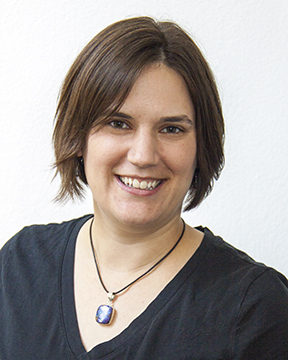
Dr. Lindsay Steiner.
Steiner said, “I recognize that this situation may affect each student in a different way (just as it does for UWL employees). As I redesign my courses, I try to remember that I need to be transparent, responsive, and supportive of my students in this endeavor.”
Steiner has experience with online learning, and has been teaching online and blended courses at UWL since 2014. One of her classes is already fully online, one is hybrid, and two are completely in-person. For her classes that are all in-person, she is trying to develop ways to continue their in-class project with a local nonprofit organization as much as possible, but an issue is accessibility.
“Not all students have the same technology and internet access to engage in live video conferencing for a group project. I will need to find ways to support group projects with accessible and low-tech solutions as much as possible. I did provide structure for the groups earlier in the semester, so they should have a solid project management and communication plan as a foundation from which to work for the rest of the semester,” said Steiner.
“Last week, I asked students to fill out a short survey that will inform me of their online learning access needs, preferences, and concerns. I will do my best to redesign my courses with student feedback as much as possible.”
Steiner said that her top concern right now is well-being of students.
“Your mental and physical health is the most important thing right now. Don’t be afraid to ask for help from your instructors and advisors. If we don’t know the answer to something, we might at least know a resource or other person that could assist you,” she said.
Steiner also offered resources such as counseling and testing, which is now offering virtual appointments, Microsoft Teams, Microsoft To Do, and suggested that students use a mediation app to help them with anxiety related to COVID-19.
She encouraged students to reach out to their instructors and understand that this is a transition period for everyone involved.
“I know this is a distressing and uncertain time for everyone. Try to be kind to yourself and to others. Please communicate any questions or concerns with your instructors; we won’t know what you need unless those needs are communicated to us. We want to hear from you,” she said.
Dr. Dena Huisman, associate professor for the communication studies department.
Dr. Dena Huisman shared that her biggest challenge is making her content engaging.
“When I have time to prepare an online class, I can structure my learning objectives accordingly, but this semester was built on the premise of interpersonal face-to-face interactions. Not only do I have to restructure things because of missing one full week of class, but I also have to reconsider all my lecture and activity plans,” said Huisman.
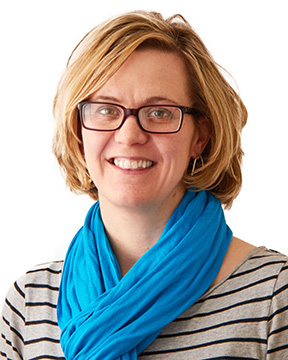
Dr. Dena Huisman.
“How do I do group activities in a virtual world? How do I make sure I can deliver all the stories and examples that illustrated concepts in a written format or short audio. I’m having to scrounge around the internet for links and things that can replace our in-person sharing of examples. In an online course, I’m prepared for that in advance, this time I’m not.”
Huisman said that she has a belief that few classes are “really ideal for online learning,” but she does think that some classes are more easily adapted than others. She shared an example of her interpersonal communication class, which she said is doable online with examples and discussions, but she feels luckier than her colleagues in the sciences and fine arts.
“I have no idea how my colleagues in art or music are going to conduct classes on those subjects when creation requires hands-on practice and instruction. How can you teach acting when you’re not together? A lot of folks in the arts are friends or students of mine, and I feel a great deal of empathy for their frustrations and concerns,” said Huisman.
She wants students to know that professors are trying their hardest and that they deserve grace with this process, and students should let them know what is and what is not working.
“This has to be a two-way learning curve, we want to keep close communication with them for class, class structure, and just overall well being,” Huisman said.
She also said students should ask for help when they need it and feel supported during this stressful time.
A part of Huisman’s job is that she is in charge of the curriculum for CST 110 classes, better known as “Introduction to Public Speaking.” A class such as this has a more difficult time adapting to online learning.
She shared that speeches will have to be posted on YouTube, or through an online meeting technology with peers.
“The big picture, however, is that 110 students this semester will experience the same basic learning outcomes as they would in a classroom. It will just come in a different package. I hope that they all leave the class better prepared to communicate effectively in their future classes and careers,” said Huisman.
She wants students to know that “we will get through this” and that we must commit to being involved and not check out mentally because of uncertainty and frustrations.
For graduating seniors, she said, “I’m so so sorry that this is how your last semester is shaking out. You deserve better, but I hope you all know that these decisions were not made lightly and that we will send you off into the world the best way we can. You should all make sure to connect with your professors now and after graduation, so we can celebrate your accomplishments in whatever way we are able to.”
Dr. Edward Kim, associate professor for the department of mathematics and statistics
For Dr. Edward Kim, he fears a bit about communication with students and says that students should be regularly checking their email. He also wants students to know that UWL professors are working to make this transition the best it can be with the given atmosphere.
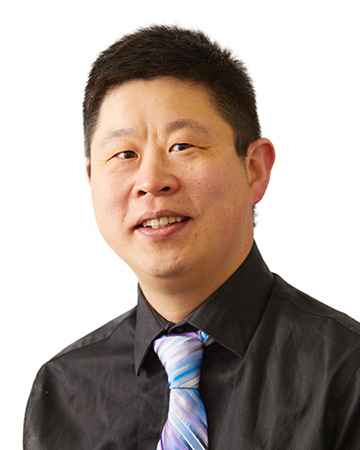
Dr. Edward Kim.
“We are doing everything we can to provide the best possible learning environment given the crummy circumstances. We recognize that you didn’t sign up for this,” said Kim. “I think that the most important thing we’ll all need in this process is buy in: once we start classes back up again, things will definitely not be the same, but participation on the part of all students and faculty will allow us to make the most of this.”
Kim said that flexibility is important with the transition, as well as asking questions.
“This will be new. This will be different. Nothing will be perfect. As things go forward, stuff that appears to work for instructors may not be working for students, and stuff that appears to work for students may not be sustainable for instructors. We will all have to be flexible with making changes. It may not seem like it from day to day, but we humans are great at adapting,” he said.
Kim also suggested that students remember to take time for themselves.
“Breathe. Take time for yourself every day. It’s not self-care; it’s restoration. Don’t expect yourself to be productive in each and every moment,” said Kim. “Build a schedule to give yourself a sense of normalcy, but be willing to alter the schedule if you’re not feeling like you’re in a place to do the things for the day: there’s always tomorrow.”
The transition for students with self-quarantine means not seeing anyone else but your roommates. For some students, this isolation may be difficult. Kim wants students to remember to check in on their friends and reach out to people that they trust.
“Do more than Snapchat and TikTok, participate in a regularly-occurring phone call or Skype chat with your friends,” he said.
Dr. Eugenia Turov, lecturer for the chemistry and biochemistry department.
Dr. Eugenia Turov said she is worried about giving students enough information to complete their coursework online. She shared that she has had to adapt assignments, change due dates, and the format of overall learning.
“This is a big adjustment for everyone and we don’t want to add undue burdens on students. We are also concerned about internet access since we know some students are sharing internet access or don’t have it readily available at home,” said Turov. “Lab courses are also challenging because it’s impossible to replicate a lab experience online. Personally, I already miss the one on one interactions with students daily and the ability to talk to them easily.”
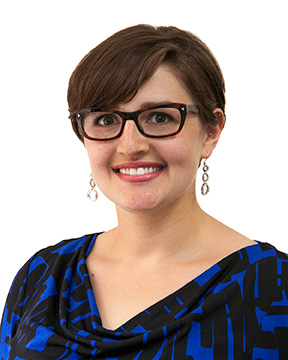
Dr. Eugenia Turov.
She wants students to be patient with themselves, as well as instructors.
“We may have to improvise if online materials aren’t working or if students have challenges with access to materials,” said Turov. “Many students will likely have a hard time sticking to a schedule and that will be important for being able to understand and learn new concepts.”
She explained that professors are trying their hardest during this time and that face-to-face class and the connections it created will be missed my professors and students alike.
“We miss being your instructors and we wish we could teach you in a hands-on atmosphere in person. We hope to see you all again soon this summer or fall,” said Turov.
UWL faculty and staff put together the following video for students entitled, “You got this,” where they shared words of encouragement.
If you have any questions or concerns, contact the Student Life office.

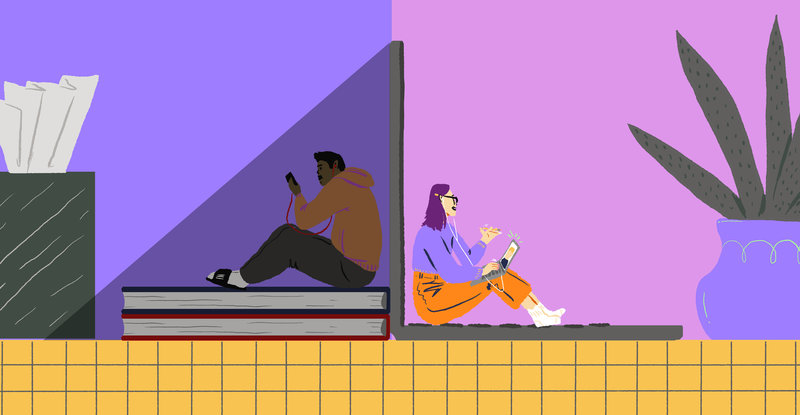
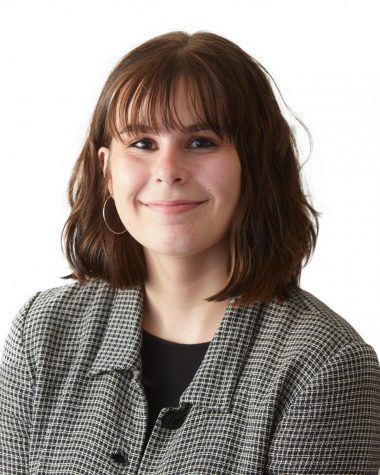





Okuse Marvellous • Jul 3, 2020 at 5:13 am
This preview is nice and great in the aspect of talking about online education. I have come to understand that the only way students can learn is online by applying for online classes due the quarantine. I find your website among of the best websites that talks about education, thanks for the lecture I really appreciate it. I think I will be writing post on education on @Tecteem and I think your site will be helpful to me.